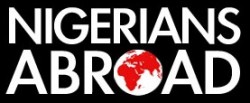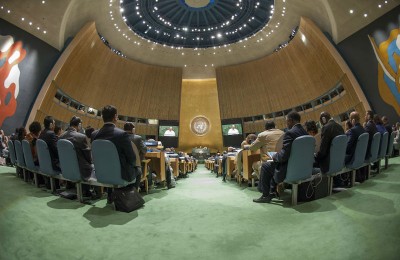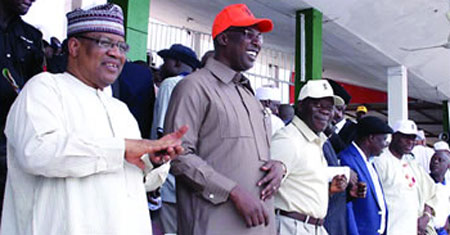2010 Annual Meetings Address by the Chairman of the Boards of Governors, the Hon. Olusegun Olutoyin Aganga, Minister of Finance of Nigeria
Welcome to the 64th plenary of the Boards of Governors of the International Monetary Fund and the World Bank Group.

Nigerian Finance Minister Olusegun Olutoyin Aganga, chairman of the IMF World Bank 2010 Annual Meetings
Back in early summer, I discussed wide-ranging reform ideas with the Fund, which is the lead agency for the preparation of the meetings this year, and with the Bank about modernizing the Annual Meetings. In just a few months, a full transformation of these Meetings has taken place, which had not changed in format for over half a century. We have a more focused and efficient plenary, we have a more attractive framework for Governors to deliver speeches, and we have an impressive Annual Meetings logo. I hope that in future years we can build on these far-reaching innovations and continue to take the Meetings forward.
My fellow Governors, the global economic crisis has had a severe impact across the globe, exacerbating existing problems and creating new challenges. The international community must now develop a new global architecture that will reduce the chance of a recurrence, address negative spillovers more effectively, protect the vulnerable and lay the foundations for strong, sustainable, job-rich, and broad-based growth.
When the membership of the Bretton Woods Institutions first came together in 1946, the global economy was vastly different. The challenges facing the world were more formidable than today. And the membership’s capacity to act was more limited. Nonetheless, we succeeded then; and, together, we can also succeed now.
Through multilateral cooperation, the membership now provides an even stronger basis to tackle global challenges. Virtually every country and type of economy is a member, providing different perspectives, and allowing for greater collaboration.
This capacity of the membership to act together, to act promptly, and to act decisively has supported the Institutions in providing unprecedented levels of assistance to members in need during the financial crisis, and in what has followed since. Members responded by strengthening the lending capacity of the IMF and the World Bank Group to support future financing of growth and to help countries better confront risks. And the Institutions have delivered. Since the crisis began, the Fund committed an unprecedented 223 billion US dollars to its members, including under precautionary arrangements, and disbursed 72 billion US dollars. In the same time frame, the World Bank Group committed 138 billion US dollars to its members, and disbursed a record 88 billion – including 22 billion to the world’s 79 poorest countries.
Above all, this has been a human crisis. Vulnerable populations in middle-income and the poorest countries experienced setbacks that could stall progress toward achieving the Millennium Development Goals. Addressing poverty remains the main challenge for development. IDA is continuing to play an important and central role in helping the poorest members, providing up to 20% of official development assistance. Over the last 10 years, IDA has helped to save 13 million lives. It needs a robust replenishment, and the time to honor our commitment is now. Similarly, by increasing its concessional financial support during the crisis by 300 percent, in 2009, the Fund helped low-income countries maintain stability and preserve vital spending; it will be critical to ensure adequate funding of the PRGT to be prepared for future shocks.
As we confront these challenges, we should draw encouragement from the flexibility and resourcefulness of developing and transition country members during the turbulence of recent years. Helping the global recovery, some members are emerging as new sources of global growth, including in Africa. It is possible that “Africa’s Lions” – like Nigeria with its 6% GDP growth last year and a robust GDP growth of 7.4% in the first half of this year – could rival Asia’s Tigers and the BRICs in the near future. In fact, this could be the defining decade for some emerging and developing economies. The Institutions can further support these members with financing, particularly in the areas of infrastructure, and knowledge as they develop as new growth centers. In turn, the Institutions can also learn more from these members’ experiences, for the benefit of the whole membership.
To successfully confront the challenges of our time, it is necessary to adapt to the circumstances of our time. The Institutions are advancing a package of reforms and innovating to increase their effectiveness. This year, the Fund has refined the Flexible Credit Line to make qualification more predictable and to extend its duration, and created a New Precautionary Credit Line with more tailored conditionality. Fund surveillance is set to be enhanced by stronger spillover analyses, significantly strengthened by mandatory Financial Sector Assessment Programs for countries with systemically important financial sectors.
The World Bank initiated investment lending reforms to focus financing more on results, and created a fast-disbursing loan. It began a pilot IDA Crisis Response Window, helping borrowers protect core spending needs during the crisis. The Food Facility is helping countries hit hard by continuing high food prices, and the Bank has scaled up its support to infrastructure, agriculture, and safety nets. The IFC’s Asset Management Corporation raised 950 million dollars from sovereign and pension funds in its first year. MIGA expanded its services in response to risks in a post-crisis world.
Members made strides towards greater accountability of both Institutions: of the Fund, by substantially building on its existing transparency policy through the improved timeliness of disclosing documents and information; and, of the World Bank Group, by introducing a new Access to Information policy, a landmark achievement that opens Bank research to the public and provides data and new software tools free of charge.
Additionally, the two institutions continued with governance reforms to better reflect the diversity of their membership, and enhance their legitimacy and effectiveness. The World Bank Group added a third African chair, and agreed to a shift in voting power to developing and transition economies, giving them a 47% share. The ongoing General Quota Review at the Fund aims to build on the 2008 quota and voice reforms by shifting a further 5 percent of quotas to dynamic emerging markets and developing countries. I call on all members to promptly consent to the agreed reforms and work toward completing the review before January 2011.
Fellow Governors, the way the membership came together to deal with the financial crisis and its continuing aftermath has demonstrated the value of joint action and forged even stronger collaboration. These Meetings provide a great opportunity to further harness the enhanced participation, diversity and cooperation of the membership as we confront the challenges of our time. We have succeeded in the past and together we can succeed again.
Thank you for your attention.













